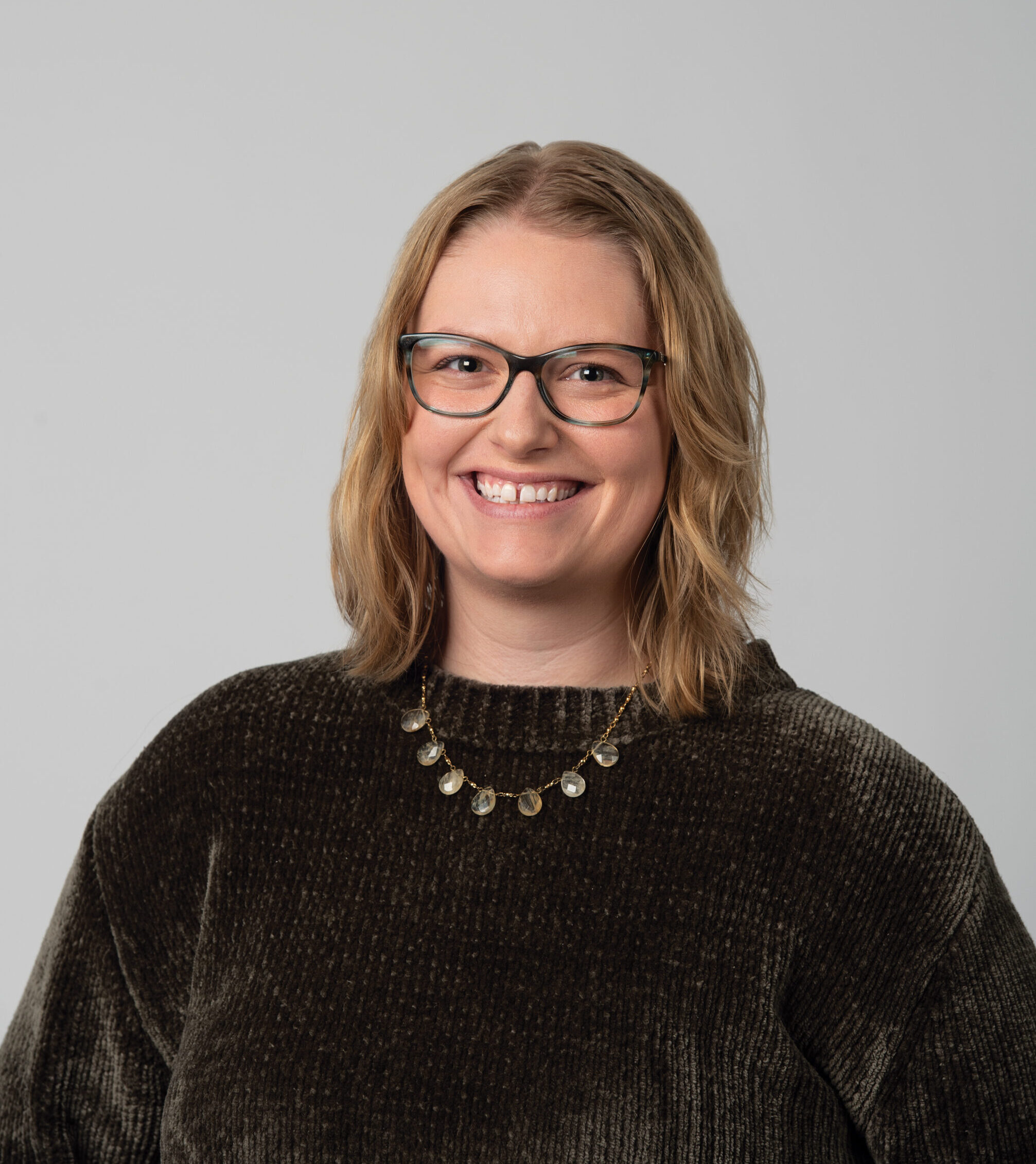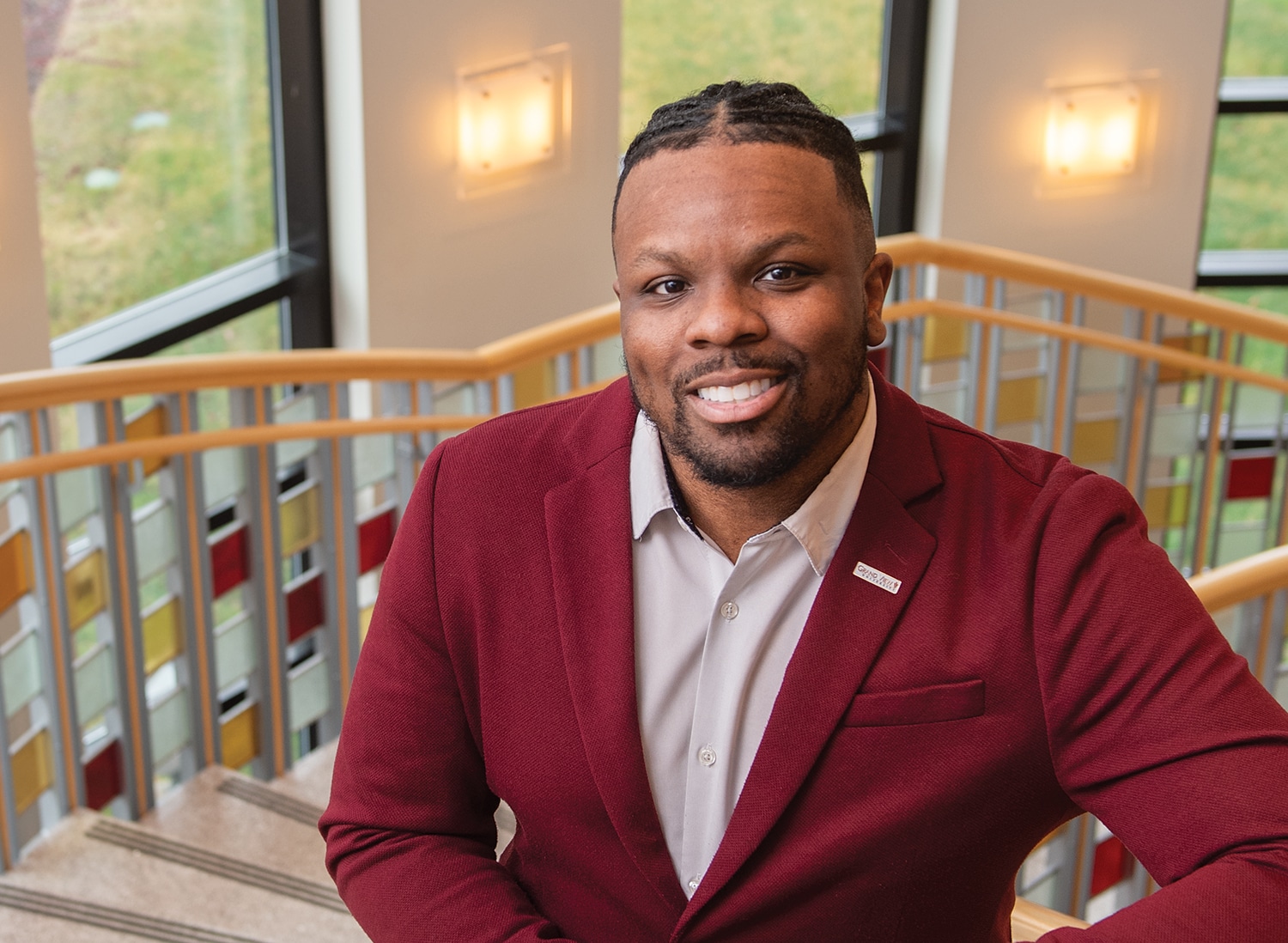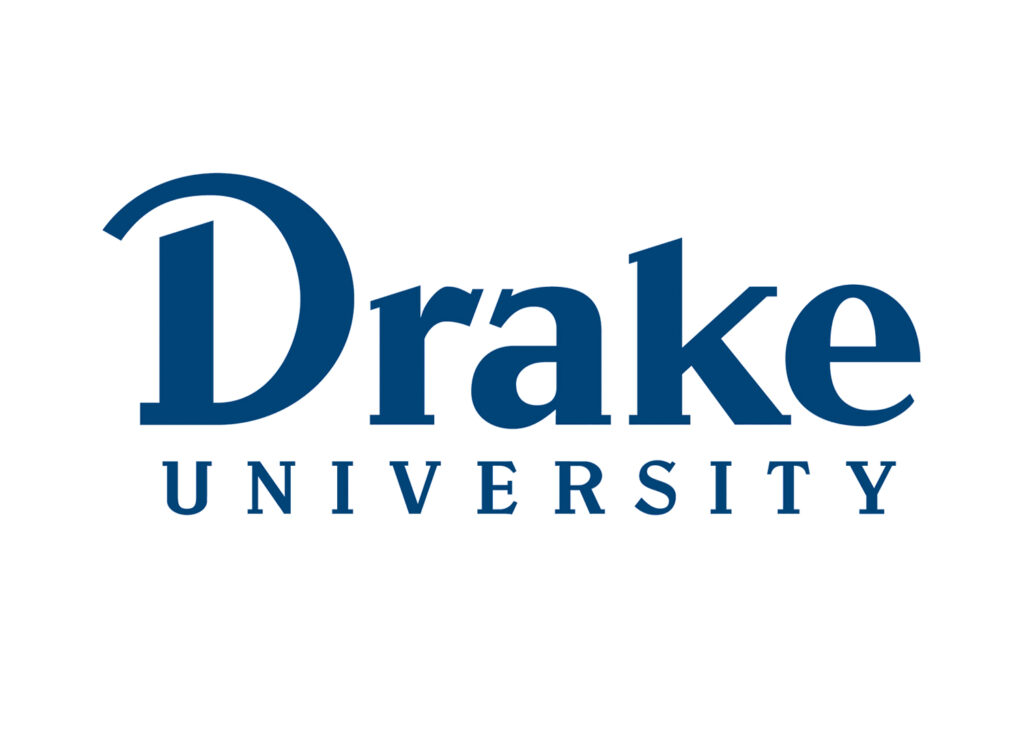A Closer Look: Skylar Mayberry-Mayes
Executive director, Jacobson Institute

Sarah Diehn May 3, 2024 | 6:00 am
8 min read time
1,961 wordsA Closer Look, Education, Innovation and EntrepreneurshipSkylar Mayberry-Mayes gives a lot of credit to the board game Monopoly for initiating his career in finance and real estate. He said he wasn’t planning to attend college as he prepared to graduate from North High School in Davenport until he was encouraged to explore his options.
As a participant in the Iowa Jobs for America’s Graduates program (iJAG), the program specialist at North High had him take a few exams and recommended tapping into the same interests that drew him to Monopoly.
The first decade or so of his career was a mixture of roles strictly in finance and some that leaned into his employers’ corporate citizenship efforts.
At Nationwide, he transitioned from underwriting to the Nationwide Foundation and office of corporate citizenship.
“At that time, it really blended my passion for community with my competency in the financial services industry, and at that point, I realized this is where I will probably end up,” Mayberry-Mayes said.
His first job after college at Bankers Trust inspired the community engagement positions he would take down the line, he said.
Mayberry-Mayes was the inaugural trainee in Bankers Trust’s management training program, which was designed for early-career talent to explore occupational interests by rotating through different departments at the company. The first rotation was participating in the Loaned Executives program at the United Way of Central Iowa, where he formed a stronger understanding of the community.
In 2022, Mayberry-Mayes accepted the role of senior strategist for Principal Foundation and Community Relations, where he served until becoming executive director of the Jacobson Institute at Grand View University in December 2023. He said he pursued a role in education because of his long-held reverence for the field.
Established in 2008 with a gift from the late Richard “Dick” Jacobson, the Jacobson Institute’s goal is to make Grand View a resource to the Central Iowa region by providing non-credit skills development opportunities to the community and workforce.
Earlier this month, Mayberry-Mayes was also appointed to the school board for Des Moines Public Schools, filling the seat of the late Teree Caldwell-Johnson who resigned before her death from cancer at the end of March. He will serve the remainder of Johnson’s term, which expires in November 2025.
Mayberry-Mayes sat down with the Business Record to elaborate on the Jacobson Institute’s mission and services, as well as his career experiences and lessons.
This Q&A has been edited for clarity and length.
What was your experience as the first participant in Bankers Trust’s management training program?
In three years, I rotated through several different business departments and business units from finance to capital management, commercial lending, human resources, trust operations and the retail side. But the one rotation that I actually did first was probably the one that led to where my career ended up going. Because I was the first one to go through that program, there was a program at United Way called the Loaned Executive Program, and it was designed to bring executives within the community together to help raise money for the United Way campaign. My very first rotation in the management training program at Bankers Trust was being sent to United Way to be in their Loaned Executive Program, so my very first six months at Bankers Trust I didn’t even sit at Bankers Trust, I sat at United Way. It really helped me understand the needs within the community and how the community functions. The social responsibility of corporations was a huge part of that, and it really brought things together for me.
How did playing Monopoly contribute to your interest in the financial sector?
My family and I played Monopoly a lot growing up. Family game time was really important to us, but I saw it as more than a game time — it almost was like a life simulator. While a lot of people get really upset in games like Monopoly, for our family it was always a learning lesson for me, and I knew that there were a lot of skills that I acquired from playing Monopoly: learning how to maintain composure in tough situations, learning how to have difficult conversations, learning how to negotiate, learning how to influence. I just enjoyed the game, everything about it, and there’s a lot of learning that takes place in that game.
Tell me more about why you wanted to join the Jacobson Institute.
I realized at that time I was at Principal that, while I enjoyed the corporate philanthropy and community relations work, my heart had always been in education. I wanted to find a way to leverage my passion for education, and miraculously, I found out about the Jacobson Institute throughout that process. I’ve always had a passion for education and had I not been a first-generation college student who felt like I needed to major in something that made money, I probably would have chosen education because of the passion. I didn’t do it at that time, but it got to a point in my life where I wanted to align my passion with my purpose.
How has the scope of the Jacobson Institute changed over the years?
At one point, the focus was really centered around literacy. At one point, it was centered around math education, at one point STEM education, and today it’s really centered around preparing the future-ready workforce. That’s what my charge is – what does it look like to prepare, produce and pivot a future-ready workforce through innovation and education? While Grand View University is focused on many of the degree-seeking students, the Jacobson Institute is really focused more on skill development for a future-ready workforce. Some of that may not be degree-seeking, those are things like certificates, industry-verified credentials, trainings, workshops and customized programs for employers.
What kinds of skill development opportunities are currently available through the Jacobson Institute?
Right now, most of the availability is around certificates and industry-verified credentials in the health care space and the technology space, but also in some non-industry specific certificates that focus on things like Microsoft essentials, understanding artificial intelligence, certificates in project management, but the plan is to continue developing what our offerings are from a skills development perspective and aligning it with business and industry needs and demand.
Are there any industries or needs the Jacobson Institute is focusing on based on feedback from employers as it develops new offerings for the community?
I wouldn’t say the focus is on industry as much, but on the continuum of workforce. We’re really trying to capture people throughout that entire continuum: those who are entering the workforce, those who are already in the workforce but looking to produce at levels that are expected, and those who are considering pivots in their careers.
As an organization engaged with the wider community, what do you think is important in how the Jacobson Institute builds those connections?
In my Ph.D. program, we had a course that was called Introductions to Epistemology. Epistemology is the study of knowing how we know what we know. For me, I’ve always positioned myself in that way, that people learn differently, and the most innovative approach that we can offer as the Jacobson Institute is helping meet learners where they are, and how they learn best. In order to know how learners learn best, it’s important to be engaged within the community. It’s important to have conversations with those who are seeking to learn but also those who are looking to hire those who have learned. It’s really about having open dialogue and being driven by community, by faculty and by the Jacobson Institute.
Are there any new initiatives coming up for the Jacobson Institute?
Right now I’m piloting an idea and I’ll be working with some community partners, and it will be entitled the JI Day of Development. There will be a series of JI Days of Development focused on different populations, including those who are preparing to go into the workforce. There will be a JI Day of Development for those who are looking to produce at levels that are expected within the workforce, and then there will be a JI Day of Development for those who are looking to pivot and utilize the skills necessary for pivoting within their careers in the workforce.
How will the Jacobson Institute interact with youths and the future workforce it aims to support?
Youths are certainly a voice that you cannot underestimate. The Jacobson Institute also has a Next-Gen advisory board, which is more focused on that population. These are early career professionals as well as Grand View students, who are really helping to best understand how businesses can pivot and navigate what is important for attracting talent. I certainly have plans to partner with business and industry, but also organizations like nonprofits in the community and the public school system because they are the ones educating our youth and doing the hands-on work, and I think partnership is really the key to success for a strong future.
You’ve served as a lecturer in UNI’s Professional Readiness program for the last several years. What have you learned from that experience about what younger generations are looking for in their careers?
What it has allowed me to do is be in the classroom and keep a pulse on those who will be entering the workforce but also those who are just in college and exploring career options. Most of the students that I have, I stay connected with on LinkedIn and I’ve just enjoyed watching their journeys as they navigate their careers. I would say probably the biggest thing I gathered in the past several years is the growing desire for entrepreneurialism within younger generations.
They still have an interest in doing the traditional jobs, but they want the ability to be creative as well, whether that takes place in the workplace or outside of the workplace. The strong desire to be entrepreneurial, or intrapreneurial, exists.
You were recently appointed to the Des Moines Public Schools school board. Can you share what interested you in serving in this position and some areas you hope to focus on?
My educational background, business experience and passion for youth success align well with the needs of the district as communicated by the vision and values of our community. I am eager to bring my passion, collaborative spirit and commitment to excellence. I am confident that together we can continue to elevate DMPS and ensure that every student receives the support and resources they need to thrive.
Is there anything else you’d like to share?
I have a passion for education. I also have a passion for youth, and for me, it is really important that our youths feel as if they are as prepared as they can be to go into the workforce and to go into society. However, I can help, being a resource to make sure that our youths are future-ready, I’m always interested in that as well. I don’t want people to think this is just about business and industry. There really is an interest there in ensuring that our future youths are also career-ready.
At a glance
Education: Bachelor’s degree in finance from the Wilson College of Business at the University of Northern Iowa; MBA from the Ivy College of Business at Iowa State University; doctorate in education from Drake University.
Activities: “I am actively engaged with several community organizations centered around youth and education, such as the Des Moines Public Schools Foundation, Big Brothers Big Sisters, Oakridge Neighborhood, UNI@DMACC Advisory Council, Investing in My Future, and Alpha Phi Alpha Fraternity Inc. In my free time, I enjoy traveling and visiting college campuses. I have visited 250-plus college campuses and counting!”
Contact: smayberrymayes@grandview.edu

Sarah Diehn
Sarah Diehn is editor at Business Record. She covers innovation and entrepreneurship, manufacturing, insurance, and energy.










